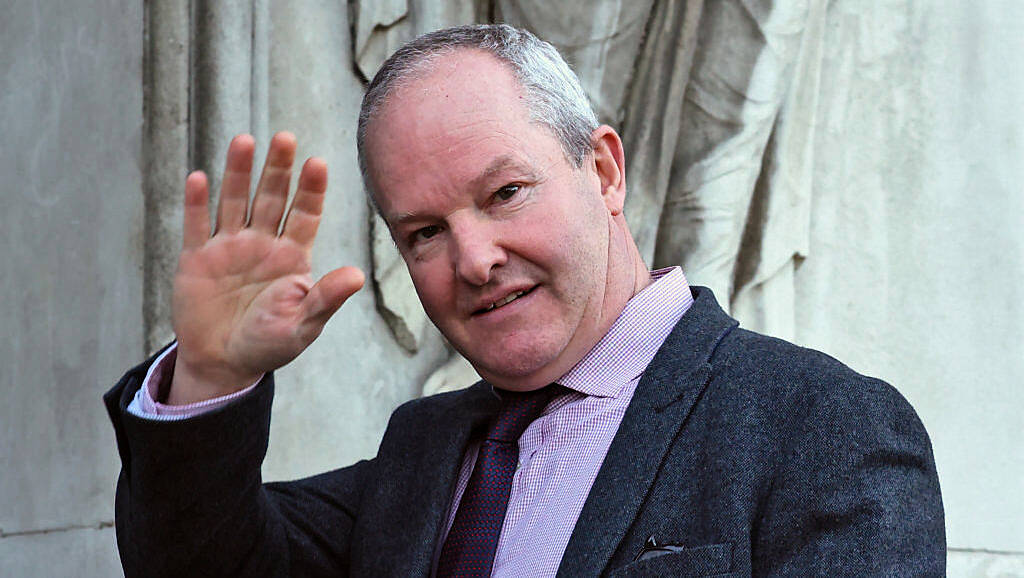A Dublin-based GP accused of professional misconduct for criticising Covid-19 measures and restrictions on social media has claimed there has been a degree of collusion to frame evidence against him at a medical inquiry.
Marcus de Brun called for the evidence of an expert witness, Colin Bradley, who had concluded that the GP’s actions were disgraceful and dishonourable, to be excluded from the case against him.
### Dispute Over Expert Witness Evidence
The application to exclude Prof Bradley’s evidence arose after Dr de Brun claimed that the expert witness’s concerns about a viral immunologist, Graham Bottley, who had made a complaint about the GP to the Medical Council, were not referenced in a report Prof Bradley provided to a committee recommending a fitness-to-practise inquiry.
Dr de Brun further alleged that plans by the Medical Council to call Dr Bottley as a witness were only abandoned earlier in the week after he objected. He also argued that Prof Bradley’s evidence should be excluded because the expert witness was asked by the regulatory body’s Preliminary Proceedings Committee to provide an additional report addressing the seriousness of the GP’s actions.
Dr de Brun told the fourth day of the inquiry before a Fitness-to-Practice Committee of the Medical Council that admitting Prof Bradley’s evidence would be unfair, as it lacks independence.
### Allegations Against Dr de Brun
The father of four, who operated his own practice in Rush, Co Dublin, faces ten counts of professional misconduct over his criticism of public health guidelines, lockdowns, facemask mandates, and Covid-19 vaccines during the pandemic.
Allegations also relate to comments he made at a public rally in Dublin in August 2020, where he was accused of failing to wear a facemask and observe social distancing.
The Medical Council claims Dr de Brun’s comments and actions were inappropriate, undermined public health guidelines, and contravened sections of the Guide to Professional Conduct and Ethics.
### Dr de Brun’s Defence
However, the GP maintains that the deaths of his patients in a nursing home during the pandemic—and the subsequent anger and upset he expressed on Twitter—were consequences of Government guidelines and the Medical Council’s inaction.
Dr de Brun resigned from the Medical Council in April 2020 over what he described as the State’s failure to protect nursing home residents.
It emerged that Dr Bottley made a complaint against Dr de Brun to the regulatory body in January 2021, after a Twitter dispute between the two.
### Expert Witness Prof Bradley’s Position
The inquiry heard that Prof Bradley cautioned the Medical Council in an email in August 2023 against relying on Dr Bottley’s social media posts to challenge Dr de Brun’s views, noting Dr Bottley’s standing was controversial.
Under cross-examination by Dr de Brun, who is representing himself, Prof Bradley accepted he had not referenced his concerns about Dr Bottley in any report to the Medical Council.
Prof Bradley described Dr Bottley as a controversial figure presenting himself as a virologist and stated it was particularly inappropriate for a medical practitioner to engage in online discussions that encouraged vaccine hesitancy, such as those by Dr de Brun.
He said he relied on the views of bodies like the National Immunisation Advisory Committee when assessing whether the GP’s conduct constituted serious failures, rather than on the Twitter dispute.
Prof Bradley told the inquiry he believed the doctor had crossed the line into serious misuse of social media by discouraging compliance with public health guidelines during a serious pandemic.
While admitting it was his fault that he had not addressed the seriousness of Dr de Brun’s conduct in his initial report, Prof Bradley rejected any suggestion that he was directed on what to include in his reports.
### Medical Council’s Position
Counsel for the Medical Council, Neasa Bird BL, said that requesting Prof Bradley to provide an additional report did not undermine his independence as an expert witness.
Ms Bird rejected Dr de Brun’s assertion that the Medical Council had coached or influenced how Prof Bradley presented his evidence, maintaining that nothing claimed by the GP undermined the witness’s independence, credibility, or reliability.
### Cross-Examination Highlights
Under cross-examination, Dr de Brun told Prof Bradley that claims he was dismissive towards patients were emotive, highlighting his 23 years of unblemished practice as a GP.
“I consider myself to have a very, very good and very empathetic and caring relationship with my patients,” he said.
Dr de Brun read an email from a patient who said they would be “greatly saddened” if their social media interactions with the doctor were taken out of context. The patient stated they had never taken offence at anything Dr de Brun had said publicly or privately, including on social media.
Prof Bradley responded that his concern was that while the GP’s tweet might have been directed at someone he knew, it could be interpreted by others as dismissive of their condition.
“I felt it was very open to interpretation that you were being dismissive of patients with diabetes or long Covid,” said Prof Bradley. “Once it’s on Twitter, it’s a comment that’s open to everyone to read and be affected by it.”
### Additional Remarks
The inquiry heard that Prof Bradley noted some of Dr de Brun’s statements were supported by other doctors and commentators who present critiques of government Covid-19 policy more reasonably.
The inquiry’s chairperson, Deirdre Murphy, adjourned the hearing and said the committee would deliver its ruling on the application to dismiss Prof Bradley’s evidence at a future date.
https://www.breakingnews.ie/ireland/doctor-accused-of-professional-misconduct-over-covid-19-criticism-alleges-collusion-1811564.html

Be First to Comment